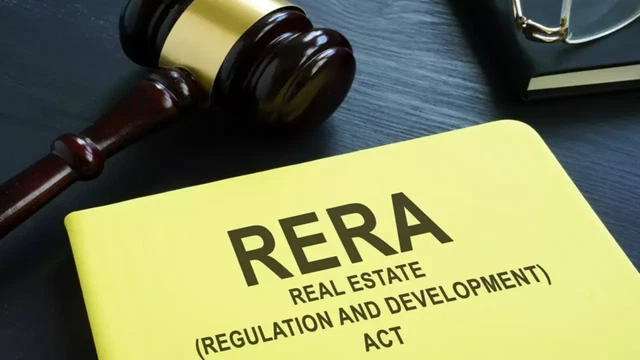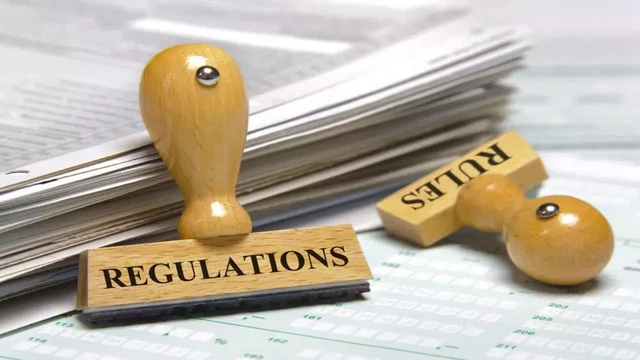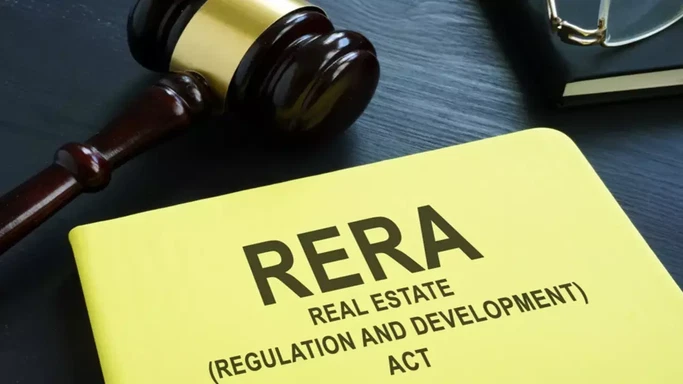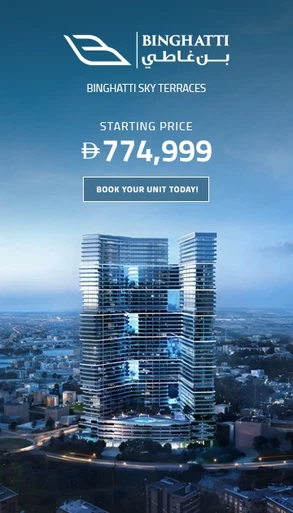In the United Arab Emirates, the vast majority of people prefer to rent a property. To avoid disagreements, both landlords and tenants must be aware of the tenancy terms.
Dubai Tenancy contracts must be recorded according to the guidelines and regulations, which are handled by RERA initiative Ejari. There are possible legal consequences for breaking the rules and conditions of Ejari in Dubai.
Therefore, it is crucial to make sure that both parties are aware of their rights and obligations before signing any rental agreement.
Here is a tenant and landlord guide to RERA rules and regulations so that there are no misunderstandings. Whether you are a landlord or a tenant, we will go over everything you need to learn about your rights as a tenant in Dubai in this guide.

What is RERA in Dubai?
The Dubai Land Department (DLD) regulatory branch is known as the Real Estate Regulatory Authority (RERA). It creates, changes, enforces, and monitors laws about Dubai real estate zone.
RERA Dubai was established in 2007 under Law No. 16 with the goals of streamlining operations, protecting the rights of stakeholders, promoting transparency, and drawing capital into Dubai real estate market.
RERA goals involve managing things like lease agreements, builders' escrow bills, broker confirmation as true with accounts, RERA rules for commission, rules for owners' associations, RERA rules for agents, and the registration of agents and real estate companies.
RERA Tenancy Laws
The Real Estate Regulatory Authority (RERA), a Dubai Land Department regulatory department, was established to oversee the application of Dubai tenancy rules for rental properties. RERA is responsible for managing the relationship between an owner and a tenant.
When it comes to the RERA tenancy contract rules in Dubai, there are four key laws concerning tenancy laws and regulations in Dubai that you must keep in mind:
- Law No. (26) of 2007: This law governs the relationship between tenants and landlords in Dubai.
- Law No. (33) of 2008: This law modified several provisions of Law No. (26) of 2007 and oversees the relationship between landlords and tenants in Dubai.
- Decree No. (26) of 2013: This ordinance established the Rental Issues Settlement Centre (RDC), which deals with all forms of rental issues in Dubai.
- Decree No. 43 of 2013: This law specifically governs rent increases in Dubai. RERA rental increase rules mentioned this.
Right of Tenants in Dubai
Both advantages and disadvantages come with renting real estate in Dubai. Dubai offers a luxurious lifestyle, various housing options, and amenities. Tenants should be aware of their RERA rules for tenants and legal defenses in case of disputes with landlords.
1. Renewal of Contract
Tenants in Dubai have the right to a contract renewal as long as they give notice to the landlord 90 days in advance of the contract's expiration date. Tenants are entitled to remain in rental properties if the landlord lacks an adequate reason for their eviction.
2. Repair and Maintenance
As a tenant in Dubai, one of the most crucial things you should understand is that the landlord is in charge of all maintenance and repairs. But the terms of the contract could modify this.
Tenants are usually responsible for up to AED 500 in repairs and maintenance and AED 1000 in villas.
3. Before the Contract Expires, Evacuate The Property
With one month's prior notice, the tenant is allowed to leave the property before the end of the rental agreement.
However, unless the contract specifically addresses an early termination scenario, the landlord is not required by law to return any rent in that situation.
RERA rules for termination of the contract by the landlord are strict. According to Dubai RERA law, a rental agreement can only be terminated by both the landlord and the tenant with mutual consent; neither can do so on their own during the term of the agreement.
The tenancy agreement survives the death of either the landlord or the tenant. Furthermore, Dubai does not have any laws governing the early termination of rental agreements.
4. Defense Against Illegal Lockouts or Utility Disconnection By Landlord
By Law No. 26 of 2007's Article 34, your landlord is not permitted to use unfair tactics like locking you out or cutting off your air conditioning, water, or electricity while your lease is still in effect.
These kinds of attempts are considered unlawful and extremely offensive, so you have the right to report them to the police and ask the Tribunal for compensation.

Responsibilities of Tenants and Landlords
Dubai rental laws provide a fair and compatible rental environment by outlining the obligations and rights of both landlords and tenants. Rera rules for landlords and tenants are so important to read. These rights and obligations are covered in some of the Decree's main articles, which include:
Responsibilities of Tenants
The following obligations of renters are outlined in RERA's articles 19 to 24 for tenants and landlords:
1. Avoid Property Damage Or Misuse
It is the tenants' responsibility to maintain the property as their own and to refrain from making any alterations that aren't approved by the landlord or Emirate authorities.
As long as the property is in the same condition as when it was given, the landlord is legally allowed to return the security deposit that was paid in full at the time the rental agreement was signed. Tenants are not permitted to sublease any use of the rented property.
2. Pay Bills and Rent On Time
Tenant is required to pay rent and any other utility or service bills on the due date, as mentioned in Article 19 of Law No. 26 of 2007.
In Dubai, tenants can be evicted from their homes if they do not pay the rent within 30 days of receiving written notice from the landlord.
In addition, tenants are expected to pay all utility bills, gas bills, electricity, phone, and water bills on time.
3. Keep Your Property Well Maintained
Tenants are required by Article 19 to maintain the rented property as reasonably as they would their own a residence. This entails maintaining cleanliness, preventing damage, swiftly reporting problems, etc.
Normal usage wear and tear is acceptable, but damage from poor maintenance will result in the security deposit being deducted.
4. Get Written Approval Before Making Any Changes Or Subletting
Under Articles 19 and 24, as a tenant, you are not permitted to alter the property's layout or structure or to assign the lease without the owner's express permission. If you do this again, you can be at risk of eviction as a breach of contract.
Both sides are required to abide by the Law. Any disagreement must be brought to RERA Dubai to decide and issue a ruling.
Responsibilities Of Landlords
For improved tenant and landlord relations, the Property Regulations Authority instructs landlords to conduct due diligence and adhere to articles 15 through 18.
Tenants have a right to a well-maintained rental property that is used for its intended purpose, as provided by their landlord.
Any maintenance and repairs affecting the tenant's use of the property will be the owner's responsibility.
The Law requires the landlord to refrain from making any modifications that would limit the tenant's complete use of the space.
The landlord will bear full responsibility for any damage that can happen to the property during the process of making these changes.
Approval from the landlord is necessary for any such changes that call for official authority.
The framework provided by the new rental Law in Dubai balances the obligations and rights of tenants and landlords. These rules support a transparent and fair renal market, guaranteeing peace and stability for all involved and advancing Dubai's standing as a top global location for investment and residency.

What to Do If Your Landlord Wants You Out - RERA Rules For Eviction
RERA rules and regulations limit how much owners can increase rent when tenants decide to extend their lease. That implies landlords can only raise rent by a specific percentage, even in cases when average market rates are growing significantly.
Many landlords in 2023 are aware that they could increase their rent if they were able to evict their tenants. This implies that your landlord could attempt to have you evicted from the house.
Only a few very particular reasons allow a landlord to evict a tenant before the conclusion of a rental agreement, according to Article 25 of Law No. (26) of 2007. Among them are:
- After receiving a written notice from the landlord, the tenant does not pay the rent within three days.
- The property is used for inappropriate or unlawful activities.
- The renter subleases the property without the owner's consent.
- The tenant utilizes the property for any purpose other than what it was leased for.
- The tenant damages the property or makes unsafe alterations to it.
- The tenant breaks the Law or the conditions of the tenancy.
- If the government requires the property destruction for urban development.
You must be evicted during the tenancy if one of the conditions listed above is met. One of the reasons listed below can be used by the landlord to try to evict the tenant:
- The property owner wants to either rebuild or demolish it.
- It is necessary to perform extensive maintenance or renovations, which cannot be completed while the tenant resides there.
- The property owner wishes to sell it.
- The landlord desires for one of their first-degree relatives to reside there or for them to live there themselves. However, in each of the mentioned instances, a 12-month written notice period is required.
If you think your landlord is trying to force you out of your home without permission and you have tried every way to get in touch with them, you can file an RERA complaint at the Dubai Land Department’s Rent Disputes Settlement Centre.
Regulatory Authorities and Legal Foundation
The UAE government, headed by His Highness Sheikh Mohammed bin Rashid Al Maktoum, authorized the required rental laws and set up regulatory bodies to guarantee an equitable and just environment for both landlords and tenants.
One important piece of legislation governing rent increases for real estate in Dubai is Decree No. 43 of 2013. The Real Estate Regulatory Authority (RERA), which handles the application of rental legislation and establishes the official index used to determine average rent prices, is another idea introduced by this Decree.
Rental Disputes Settlement Centre (RDC)
With the creation of the Rental Disputes Settlement Center (RDC), a major step toward getting justice and transparency in rental disputes was made.
The RDC was formed to promote social and economic stability, ensure fair treatment, and expedite the resolution of rental conflicts under the direction of His Highness Sheikh Mohammed bin Rashid Al Maktoum.
RDC serves as a neutral body that resolves rental disputes openly and makes an effort to render fair decisions.
Is It Legal For the Landlord to Request a Security Deposit?
There are also RERA rules for security deposit. At the start of a tenancy agreement, landlords in Dubai have the right to demand payment of a security deposit from their tenants.
When looking for a rental property, you should anticipate this, as it is almost always the case. For an unfurnished property, the security deposit is usually equal to 5% of the annual rent; for a furnished property, it is 10% of the annual rent.
The security deposit should be given back to the tenant in full or in part when they vacate the property, provided that it is returned to the owner in good condition at the end of the tenancy.
How Does a Tenant File a Complaint Against the Landlord with RERA?
1. Gather Evidence Before Filing
The first and foremost point is to gather enough evidence against your landlord before you file your complaint with RERA. Documentation is better than verbal as it is hard evidence of your statements and claims.
2. Draft a Formal Complaint
Write to RERA: Tenants should prepare a formal letter to RERA. The letter should clearly explain where they are at fault—attacking them or refusing to pay rent. The letter must include:
- This is a clear explanation of the problem.
- Relevant dates and events.
- Any efforts to settle amicably.
- Documents to back up the argument.
3. Lodge the Complaint and Go to the Dispute Settlement Centre (DSC)
After filing the complaint, tenants are required to approach the RERA Dispute Settlement Centre (DSC). The tenant and landlord will each have the opportunity to testify and submit evidence. The DSC acts as a mediator to help negotiate a mutually agreeable outcome.
4. Escalation to the Rental Dispute Settlement Committee (RDSC)
The case will be referred to the Rental Dispute Settlement Committee (RDSC) if the DSC mediation doesn't solve the problem. Here, a legal decision will be made on the merits of the individual facts and circumstances of the case.
5. Appeals Process
In cases where any relevant parties do not agree with the ruling, the judgment may be appealed to the Appeals Committee within a time frame to be decided by the Committee.
6. Stay Patient and Keep Everything Organized
Tenants must organize their documents and track all key documents involved at various stages of the process. These legal processes may take longer than expected—be patient!
Closing In
Dubai is a wonderful city that offers its citizens many opportunities and a higher standard of living. The UAE real estate market has been expanding as a result of the country's economy, which has grown recently, particularly in the Emirate of Dubai.
Rental laws were created to protect the interests of investors, individuals, and real estate companies due to the rise in demand for properties that cater to both locals and foreigners looking for luxurious yet affordable accommodations.
The rental market in Dubai is well known to have experienced significant growth in recent years. Tenants are most likely to extend their leases when the annual rental rate increases by an average of 27.7%.
According to the most recent reports from 2025, Palm Jumeirah community has the highest average annual rental rates for both villas and apartments, reaching AED 260,467 and AED 1,017,614, respectively.
Read More...






